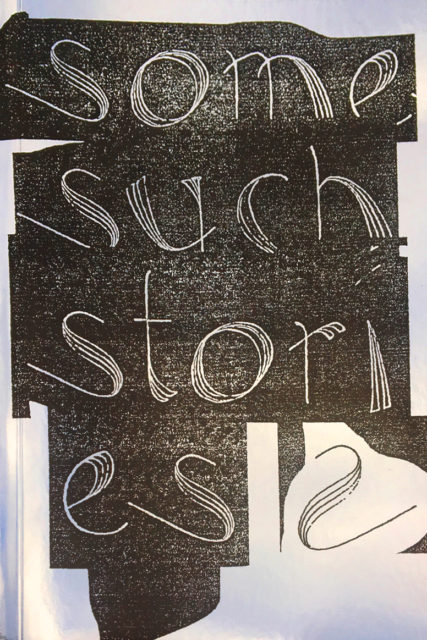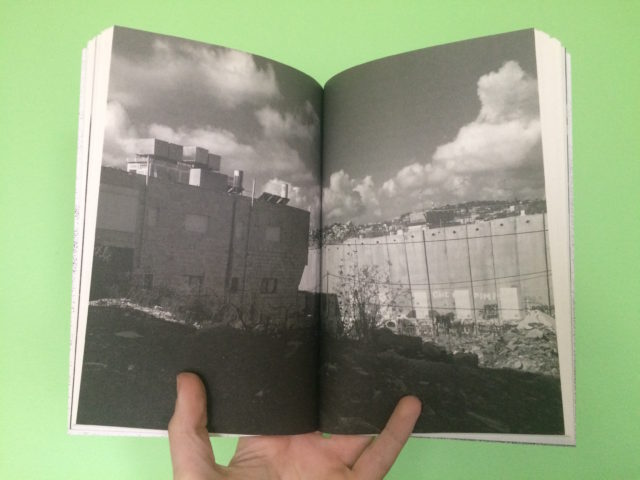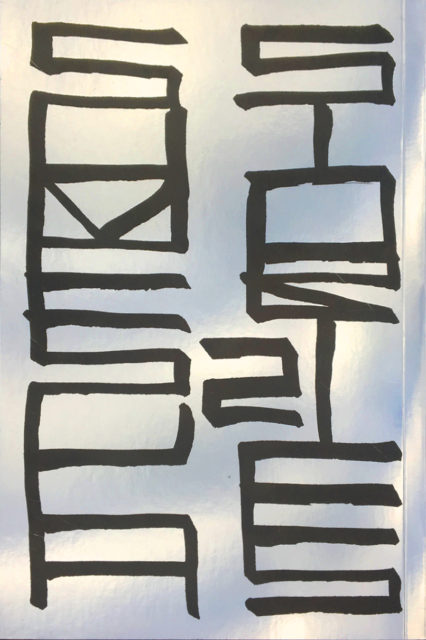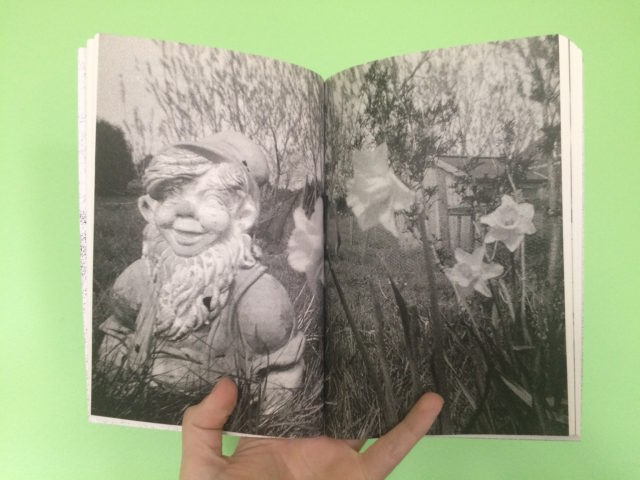Somesuch Stories, founded by London production company Somesuch in 2014 as a digital platform featuring essays and short stories by contemporary writers, came out with its first print issue Somesuch Stories Vol. I in 2015. Edited by journalist Suze Olbrich, the collection brought together works published on the Somesuch Stories website that spanned topics from culture and nature to sex and society, including pieces by Amy Liptrot, Ben Myers and Philippa Snow, among others.

After the success of the first print collection, Somesuch Stories decided to become a biannual project, with the second issue set to launch on January 26 with an RSVP party at London’s The Shed. In light of recent political upheavals, the new issue has commissioned 10 writers to respond to the theme of ‘identity,’ and the ways this concept — according to Olbrich — is collectively and individually “formed, related to, claimed and assigned.”
Meandering through mental and physical landscapes, each story explores a a sense of self as defined by past and present futures, seamlessly transitioning from one to the next. Distant memories form structures of longing and returning, from Luke Turner‘s musings on “a memorial to a lost sense of belonging” in ‘Stoodley Pike’ to the less romantic recollections of gender and sex in Ka Bradley‘s ‘The Wall.’
Switching up time-frames and moving from one party gathering to the next, Dean Kissick‘s ‘Young Moon’ is both intimate and distant in its colloquial language. A similar tone of irresolution makes for unstable wanderings in aqnb editor Steph Kretowicz‘s ‘Home is where the fear is/ Same shit, different city.’ A photograph of a pro-Trump shopfront taken from through a window is sandwiched between the autobiographical text that is set within a “post-Brexit hangover of precarity and fear.” A multinational writer moves the reader from one social encounter to the next, each feeding back into the loop of anxiety associated with the idea of ‘home.’
“Less Othering. More humanity. There’s also a dark humour to a lot of what we publish,” says Olbrich, who discusses with us the aim behind the project, and the way identity is built upon a “multiplicity of colluding factors” that are continual shifting.

** I enjoy the length of the stories. There’s a nice way all the disparate narratives are compiled into one book essentially. What draws you to short ‘stories’ over other forms of writing and poetry?
Suze Olbrich: Yes, the intention was for each piece to compound certain ideas from the previous, weaving it tighter and tighter, however it can be hard to judge whether that will come across strongly so it’s nice to hear that it does, thank you. Anyway, it’s fairly straightforward in that short stories provide much scope for creativity and experimentation — a great testing ground for characters and concepts. They are also deep enough to take a reader to another place for a while, and should it work, to leave a lasting impression. With essays, it’s the interrogation thing. They are an excellent form for exploring ideas around culture and society, while tethering pieces into ongoing discussions around topical themes. We also publish a lot of what would fall under creative non-fiction, hybrids, and I think that’s important as very little of what we do is reporting, and so getting stringent about categories seems nigh on false. Life and its interpretations, even on a personal level, doesn’t function that way, subjectivity shapes everything.
** What made you want to go from online publishing to the printed physical book?
SO: With issue 1 it was to mark a year of existing online. It felt like a natural evolution and everyone involved loves print. We also realised a lot of those fantastic early pieces wouldn’t have had all that many eyes on them, and wanted to celebrate and draw attention to the project. Ongoing, it lends itself supremely well to the form, and the idea of publishing a whole series of them that can sit on shelves, for decades even perhaps, appealed hugely.

** How do the published books differ from the online content (do they become more curatorial)?
SO: I’ve been commissioning online pieces in thematic series for the past year-and-a-half, the current one is desire, so it’s not vastly different in that basic sense. However, also thinking about it as an object, and obviously commissioning and designing it as one, with stories and essays that will sit next to each other IRL and form a dynamic, cohesive journey that (hopefully) will be absorbing and enlightening. Yes, there is more of a curatorial element in an experiential sense.
** The theme ‘identity’ feels both broad and specific. Is there an aim to capture some sort of trend and shared conversation or are you trying to create something more multi-directional in that sense?
SO: It has to be multidirectional, and shared, as, I mean, it’s essential to everything, and it will never stop evolving whether on an individual level or within any sort of grouping of humans. But it was also greatly informed by the time during which the brief for the issue was devised, the fortnight following the referendum with attendant disarray here and ever more concerning developments in the lead up to the US election, as well as the ongoing refugee crisis and its causes and repercussions. There was a lot of uncertainty unleashed by that result, as well as vitriol, racism, xenophobia and bigotry; so much labelling, Othering and disparaging categorisation. And there was no way round that, it bled into every conversation, every piece of media, and we had the opportunity to publish considered, creative responses to it, to try do undo some ill-feeling even in the tiniest way.

So, for example, we have an essay looking at broader geopolitical and societal factors such as widespread economic insecurity that are shaping young people’s mindsets, and might lead them to pay heed to nationalist rhetoric, by Oscar Rickett, and then a short story by Abiola Oni set in a dystopian near-future that focuses on how a lack of documentation curtails a life, which is hugely resonant. Yet, the issue is not solely focused on that quagmire. A lot of what we publish looks at notions around contemporary culture, and the issue also explores identity constructs pertaining to celebrity figures, both the idolisation of hip hop stars in Dean [Kissick]’s script, and systemic sexual abuse and misogyny in Hollywood in Philippa [Snows]’s essay about Mia Farrow. In addition, we take a sideways look at whether it’s possible to maintain a coherent sense of self while living a transient, freelance, always-online life.**













